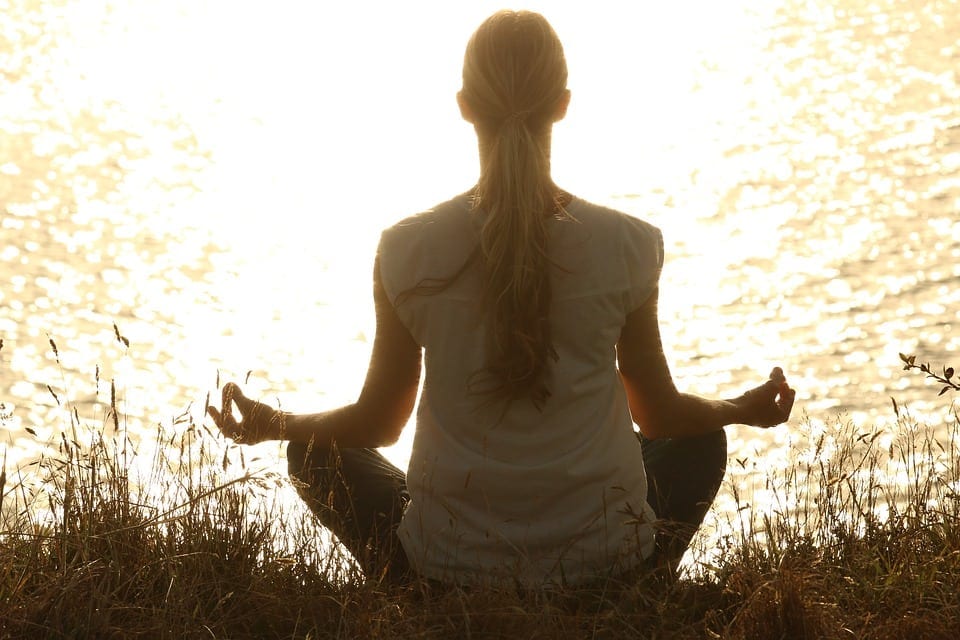Meditation has roots in the contemplative practice of nearly every major religion. The prevalence of meditation in the media has given the word various meanings. So what is meditation? Meditation can be referred to as the cultivation of basic human qualities, such as a more stable and clear mind, emotional balance, a sense of caring mindfulness, even love and compassion. These qualities can remain latent if no effort is made to develop them. It is also a process of familiarisation with a more serene and flexible way of being.
In principle, meditation is relatively simple and can be done anywhere. No equipment or workout attire needed! The meditator begins by assuming a comfortable physical posture, neither too tense nor too lax and by wishing for self-transformation and a desire for others’ well-being and for the alleviation of their suffering. Later the practitioner must stabilise the mind, which too often is disorderly and occupied by a stream of inner chatter. Mastering the mind requires freeing it from automatic mental condition and inner confusion.
Below are three common types of meditation developed through Buddhism and now practiced in secular programs in hospitals and schools throughout the world.
Focused-attention meditation aims to tame and centre the mind in the present moment while developing the capacity to remain vigilant to distractions.
Mindfulness or open-monitoring meditation works to cultivate a less emotionally reactive awareness to emotions, thoughts and sensations occurring in the present moment to prevent them from spiralling out of control and creating mental distress. In mindfulness, the meditator remains attentive, moment by moment to any experience without focusing on anything specific.
Compassion and loving kindness is a Buddhist tradition that fosters an altruistic perspective towards others.
Neuroscientists have now begun to probe what happens inside the brain during the various types of meditation. A team at Emory University used brain imaging to identify the neural networks activated by focused-attention meditation with participants focusing their attention on the sensation produced by breathing. newTypically during this form of meditation, the mind wanders and the meditator must recognise this and restore attention to the gradual rhythm of the inhaling and exhaling. In this study, the meditator had to signal mind wandering by pressing a button.
Researchers identified four phases of a cognitive cycle: an episode of mind wandering, a moment of becoming aware of the distraction, a phase of reorienting attention and a resumption of focused attention. Each of the four phases involved particular brain networks located throughout the brain.
Different patterns of activity can also be observed depending on a practitioner’s level of experience. Veteran meditators with more than 10,000 hours of practice showed more activity in the attention-related brain regions compared with novices.
Advanced meditators appear to acquire a level of skill that enables them to achieve a focused state of mind with less effort. These effects resemble the skill of expert musicians and athletes capable of immersing themselves in the ‘flow’ of their performances with a minimal sense of effortful control.
Meditation compared to Mindfulness
Mindfulness or open-monitoring meditation requires the meditator to take note of every sight or sound and track internal bodily sensations and inner self-talk. The person stays aware of what is happening without becoming overly preoccupied with any single perception or thought, returning to this detached focus each time the mind strays. As awareness of what is happening in one’s surroundings grows, normal daily irritants such as an angry colleague at work; a worried child at home, become less disruptive and a sense of psychological well-being develops.
Summary
If you wish to become proficient at either Meditation or Mindfulness the key is to practice, practice and practice some more. Just like an expert musician or highly skilled athlete, it takes hours of training and practice to reach peak performance.
My suggestion, if you are new to meditation, start with a mindfulness practice and then progress to meditation. Never give up and you will achieve success. It simply takes a small amount of daily effort.
Written by Jan Sky (Neuro psychotherapist, Clinical Hypnotherapist)



